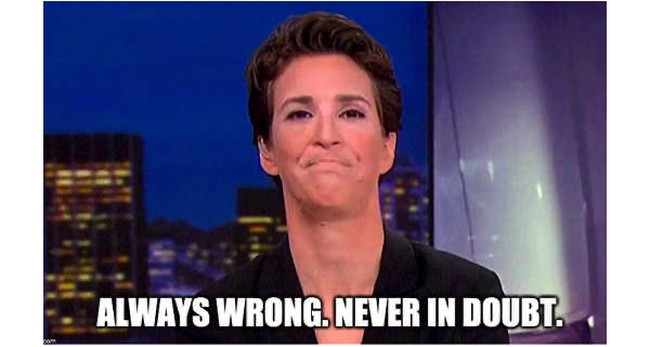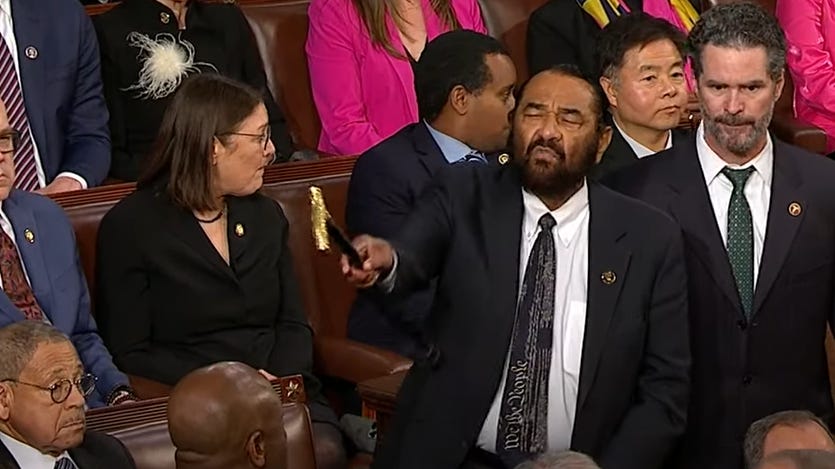ARTICLE AD BOX
The right has shot itself in the foot. By assuming leadership of Reform UK, and benefitting from an unfair share of publicity, Nigel Farage has transformed the party into a major political force. Preying on disillusioned voters, the hard-right party successfully ate into the Tory vote and contributed substantially to a Labour win.
With small ‘c’ voters torn between the Conservatives and Reform UK, the political right now faces something of a dilemma. Do they learn how to work together, or continue to lock horns and risk being locked out of power for a very long time?
If we examine the figures from July 4, it’s clear that the right’s electoral juxta-positioning has reached new levels of complexity.
The Conservatives with their 24 percent of the vote, secured just 19 percent of seats. Meanwhile, Reform, the third-largest party by vote with a respectable 14.3 percent, ended up with just five seats. Labour, despite taking only 34 percent of the votes, walked away with around 64 percent of the 650 seats, a 174-seat majority. This marks the biggest-ever gap between the winning party’s vote share and their seat haul. To add more salt to the wound, Reform managed to secure around 600,000 more votes than the third-placed Liberal Democrats, who ended up with 71 seats from their 3.5 million votes.
If you combined the Tories’ and Reform’s vote share, it would have surpassed Labour’s, leading to a very different outcome. Of course, those of us on the left could equally argue that if you combined all the ‘progressive’ votes then the outcome might have stayed much the same, such are the joys of psephology.
Keir Starmer and his top team might be beaming like cats that got the cream, but in reality, the party is less popular than it was under Jeremy Corbyn’s leadership. In 2017, Labour won 40 percent of the vote share. In 2019, Corbyn’s party took 32.2 percent of the votes. Boris Johnson’s landslide was labelled as Labour’s “worst night since 1935.” Yet despite the vote share of Keir Starmer’s party only being marginally higher than in 2019, Labour’s landslide in this election is being celebrated as a “historic victory.”
Described by Darren Hughes, chief executive of the Electoral Reform Society, as the “most disproportionate election on record,” the July 4th vote has renewed calls for electoral reform and the ditching of the ‘winner takes all’ first-past-the-past (FPTP) system for Proportional Representation (PR). Such calls, interestingly, span both the left and right.
Farage says Britain’s FPTP electoral system is “unfair.” “I think these results will reinforce in people’s minds the need for reform,” he said. The Green Party, which received 6.8 percent of the vote for its four seats, has long called for the end of FPTP. In 2015, one million people voted Green, yet they got just one MP. A proportional system could have given them over 20 MPs.
According to the Electoral Reform Society, if the UK had used the additional member system of PR this year, which is used for Welsh and Scottish parliaments, Reform would have won 94 seats across the country on Thursday and the Greens 42. But by sticking with the old system, minor parties like Reform and the Greens remain underrepresented in parliament relative to their vote share.
Labour owes its victory to Farage?
By taking votes away from the Tories, Farage has given Labour many reasons to be thankful. As the polls had suggested, the Farage-fronted populist party, a rebrand of UKIP, proved to be a thorn in the Conservative Party’s side. Securing more than 4 million votes and five parliamentary seats, Reform’s performance eclipsed UKIP’s in the 2015 election. Speaking to supporters in Clacton-on-Sea before the election, the arch-Brexiteer said:
“There is a massive gap on the centre-right of British politics. And my job is to fill it.”
It hurts to say it but, in many ways, Farage ran an effective campaign. Reform and its leader made the biggest splash on social media of any political party, amassing over 2.8 million reactions on Facebook, compared to Rishi Sunak’s 270,000, and Keir Starmer’s 300,000. It was a similar story on X (Twitter), with Farage gaining 13.9 million likes and retweets during the election campaign, significantly more than the other parties.

The video-sharing platform TikTok could have been renamed the ‘Farage show.’ Much to my horror, my two teenage sons kept showing me videos of Farage on TikTok, which they found amusing. I think they only did it to wind me up, but their interest confirmed the right-wing leader’s impact online, and, worryingly, his potential influence among young people. He also managed to steal the limelight in more traditional media. Research by Loughborough University showed that despite having no MPs at the time, Farage received significantly more airtime and column inches than his counterparts in smaller parties. This led to criticism that the media, in their ‘obsession with Nigel Farage,’ had normalised right-wing arguments on immigration and the economy and marginalised candidates with progressive ideas.
Reform’s campaign success, despite being engulfed in scandals about candidates making racist, homophobic, and sexist remarks, indicated more than that the party’s target audience is highly engaged on social media. It also shows that with a populist figure like Farage at the helm, who portrays complex ideas in black-and-white terms, undoubtedly resonates with some of the public. (£20,000 starting tax rate anyone, paid for by ‘cost-cutting’. Stop the boats tomorrow – a cinch!). By contrast, left-wing campaigns, often focused on more nuanced policy discussions, tend to be less potent. Progressives also tend to be less showy, pretentious, and aggressive, which, sadly, can lead to less effective campaigning.
Farage and his party also successfully harnessed disillusionment with the Tories among right-wing voters, most notably over immigration. Rob Ford, a professor in politics at Manchester University, said Reform’s support was too evenly spread for the party to win many seats, but it split the right-wing vote and cost the Tories seats.
A poll conducted by Tory peer Lord Michael Ashcroft showed that a quarter of Conservative voters in 2019 switched to Reform. The poll suggested that most of Reform’s support came from voters aged 45 and above, while it had the lowest vote share of any major party among those aged 18 and 24. This at least shows that youngsters may have been watching the ‘Farage show’ on TikTok, but they were not buying into it. Laughing at him, rather than with him, it could be said.
Nonetheless, armed with electoral success, Farage now aims to leverage Reform’s results as a springboard for the next general election. He said the Labour majority was “simply an anti-Conservative vote” and that Reform would now set its sights on Labour voters to build a national movement capable of challenging the mainstream parties in 2029.
Tories search for their soul
With Reform bracing for war with the Tories, the question is how will the Conservatives, who are about to enter a leadership contest, respond? Will they lean to the centre to placate the moderates, or right to compete with Reform?
Voters have already narrowed the field, with centrists Penny Mordaunt and Grant Shapps both losing their seats. Other moderate figures like James Cleverly, Jeremy Hunt, Tom Tugendhat, and Victoria Atkins, might launch bids.
But, if this week is anything to go by, a drift to the right is looking likelier. Bob Blackman, Tory MP for Harrow East, has been elected chair of the powerful 1922 committee of backbench Tory MPs. Blackman’s hard-right credentials are well-known, including sharing posts by far-right Tommy Robinson.

The election of Blackman has caused ripples in what looks set to be a new civil war among the Tories. Kemi Badenoch, a leadership favourite among the right, ripped into Rishi Sunak during the party’s first post-election shadow cabinet. She slammed the former PM for calling an early election without consulting the cabinet. She also took aim at her leadership rival on the right Suella Braverman, claiming she was having a “very public” nervous breakdown.
Braverman’s extraordinary NatCon speech
Braverman’s leadership hopes were dealt an early blow, with a source telling the Times that her campaign is “dead before it even started”, accusing her of “going too hard, too soon.”
In what will be seen as a pitch for right-wing support in the forthcoming Tory leadership campaign, the MP for Fareham launched an extraordinary attack on the LGBT+ community and her colleagues during a speech at the National Conservatism Conference in Washington DC. It was Braverman’s third showing at the conference for global political figures on the far-right. She was due to speak alongside former Trump advisor Steve Bannon. But in early July, the right-wing podcaster and vociferous Trump cheerleader began a four-month prison sentence after being convicted of contempt of Congress.
Earlier this year, Liz Truss faced criticism for carrying out a conspiracy-laden interview with Bannon. This connection with the far-right media personality-turned-Trump adviser highlights the extent to which UK Tories have been influenced by the radical right, which has taken control of the Republican Party.
Addressing the NatCon audience, Braverman criticised initiatives to support LGBT+ rights, suggesting that government buildings flying LGBT+ flags were ‘occupied territory.’ She hit out at the transitioning of young people, which she described as “mutilation” which left her “physically repulsed.” The twice-sacked home secretary also blasted her former colleagues in government, branding them ‘liberal Conservatives who trashed the Tory party’.
The comments sparked a furious backlash from moderate Conservatives. Broadcaster and Conservative supporter Iain Dale described the speech as “disgusting.”
“And she seriously thinks she has a chance of leading the Conservative Party. Not while I have a breath left in my body. Moderate Conservatives need to stand up and be counted. This will not stand,” Dale posted on X.
Then there is the possibility of Reform and the Tories merging to unite the right. Braverman sparked further criticism by calling on her party to reach an “accommodation” with Nigel Farage. The comments put her at odds with other senior Tories who have rejected a deal with the Reform leader.
Farage has repeatedly ruled out joining the Tories, having said he wants “nothing to do with them.” But a recent YouGov poll of 725 Tory members found that the Tory grassroots are split over the prospect of a merger with Reform UK – with nearly half of the members in favour of joining forces with Nigel Farage’s party, while 48 percent were opposed, with the remaining five percent unsure.
What is more certain than the Tories’ future is that Nigel Farage’s return to the political stage has reshaped the British political landscape. By siphoning votes from the Conservatives, he helped pave the way for Labour’s victory and reignited debates about electoral reform – ironically, a topic historically championed by the Lib Dems and some on the left. The election was not just a victory for Labour, but a wake-up call for the right. Their response will be crucial and should be closely monitored.
Right-Wing Media Watch – Labour landslide sends Torygraph into meltdown
The Telegraph is not coping well with a Labour government. While many of the other right-wing newspapers have shown some restraint regarding the change of government, the Mail even offering congratulations to Starmer, the still-up-for-sale Telegraph has gone into a complete meltdown.
Unlike the Sun, which shifted its support to Labour on the eve of the election – probably because Murdoch can’t seem to back a losing side – the Conservative broadsheet showed no such wavering.
“The UK is about to enter a nightmare much darker than anyone yet realises,’ read the headline of a comment piece by Sunday Telegraph’s editor Allister Heath on the day of the election.
“I hope you enjoy horror films, dear readers, for British politics is about to be turned into an infernal, soul-destroying hellscape worthy of the sickest Hollywood minds,” Heath writes.
His “apocalyptic scenario” of the Liberal Democrats becoming the official opposition and turning Britain into a “left-wing one-party state,” did not, of course, materialise.
The op-ed was so absurd that excerpts from it were read out at the New Stateman’s election night party at the Liberal Club in London by political editor Andrew Marr, reportedly to roars of laughter.
Another dramatically hyperbolic headline in the Telegraph, this one by ‘chemical weapons expert’ Hamish de Bretton-Gordon, read: “This is the most dangerous moment for Britain in 40 years.”
The meltdown hasn’t gone unnoticed by Telegraph readers.
“Those right-wing tears are getting ridiculous,” one reader commented.
“It’s impossible to parody the Telegraph these days. Odd to think that just a few decades ago it used to be a credible newspaper,” was another comment.
“I see the Telegraph is still taking this exceedingly well,” mocked Adam Bienkov, political editor of Byline Times.
But perhaps the most hysterical column in the paper this week was headlined:
“Is James Timpson the most dangerous man in Britain?”

The article mocks Keir Starmer’s appointment of James Timpson, CEO of the key-cutting retailer Timpson as prisons minister. Timpson is well-known for his commitment to employing ex-offenders, with around 10 percent of his workforce consisting of people with convictions. Earlier this year in an interview with Channel 4 News, Timpson said that Britain is “addicted to punishment” and that we imprison too many people for too long, and that just a third of offenders should locked up.
Timpson’s appointment has been well-received by many prison experts who praise his innovative and rehabilitative strategies. Andrea Coomber, chief executive at the Howard League, a leading prison reform charity, welcomed the appointment. “For more than 20 years, James has been visiting prisons and recruiting prison leavers. Having seen the system up close, James understands that prisons currently are unable to rehabilitate or hold safely and decently the huge numbers of people within them,” she said.
But Starmer’s choice of prisons minister has clearly upset the right, as Timpson’s progressive approach to criminal justice differs significantly from their traditional conservative views that favour stricter punishment and less leniency.
As right-wingers express their outrage, many progressives see hope in the selection of the unorthodox, principled, and ethical business leader, suggesting we might just see a genuinely progressive even transformative Labour government after all.
Bring on the right-wing headlines I say.
Woke-Bashing of the Week: GB News resorts to desperate tactics, alleging left-leaning Tories plot to install ‘wet, woke’ leader
GB News attempted to stir up a frenzy this week, with some wild assertion about the Tory leadership race. The right-wing platform claimed to have uncovered a secret meeting of the Tory Reform Group (TRG).

The report described the TRG as representing “the left-leaning, socially liberal “One Nation” faction of Conservative MPs.” A private invitation obtained by the channel, reveals the group’s plans to meet on July 16, to “get together after the election campaign, share stories and celebrate with one another the election of a strong cohort of One Nation Conservative MPs, both returning and new.”
The invitation has allegedly sparked speculation among right-wing party members about the group’s intentions ahead of the upcoming Tory leadership election. An unnamed ‘Conservative Brexiteer’ source told GB News: “The TRG are planning to take over the party with yet another wet, woke ‘One Nation’ MP.” They added: “Rishi was one of a long list of liberal Tories who opened Britain’s borders, kept us close with the EU, spent record amounts on welfare and the NHS, and supported wokeism. They are plotting how to maintain control of the party despite being responsible for this epic loss. The TRG needs to be booted out and host their summer party with the Liberal Democrats instead.”
Isn’t it high time that someone addressed people like this unnamed Conservative Brexiteer, and GB News, and tell them that deliberately weaponising ‘wokeism’ to evoke resentment towards more centrist and left-wing politics does little to appeal to voters. Even in the US, where the ‘war on woke’ originated as a right-wing crusade, Republican voters have largely moved on from the rhetoric, as polling last year indicated.
GB News clearly enjoys banging its woke war drums and no doubt will continue to do so but if the election tells us anything, it is that the great British public is much more worried about the cost of living, the state of their towns, and high streets, public services and an all-pervasive sense that the world should be a much better place. Of course, some of them worry about immigration and some politicians will continue to exploit those fears, but the idea that they sit at home fretting about the proper use of pronouns, or the undermining of masculinity is a fiction that exists only in the fevered minds of GB News’ presenters and their like. The public might not care for politicians but if we have to have them, then let them at least be competent seems to sum up the national mood.
Gabrielle Pickard-Whitehead is author of Right-Wing-Watch
To reach hundreds of thousands of new readers and to make the biggest impact we can in the next general election, we need to grow our donor base substantially.
That's why in 2024, we are seeking to generate 150 additional regular donors to support Left Foot Forward's work.
We still need another 124 people to donate to hit the target. You can help. Donate today.
The post Labour landslide? – It was Farage wot did it! appeared first on Left Foot Forward: Leading the UK's progressive debate.
.png)
 7 months ago
5
7 months ago
5








 English (US)
English (US)